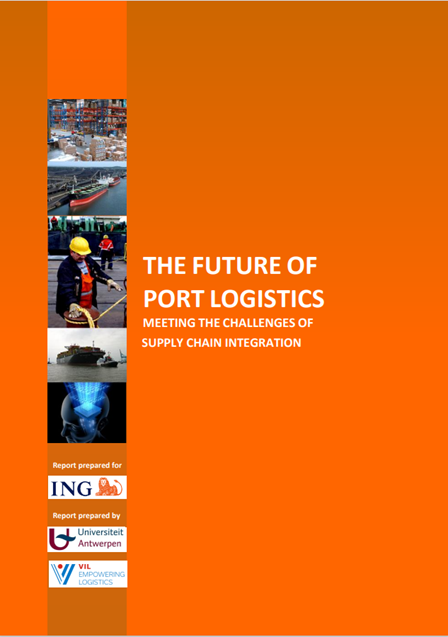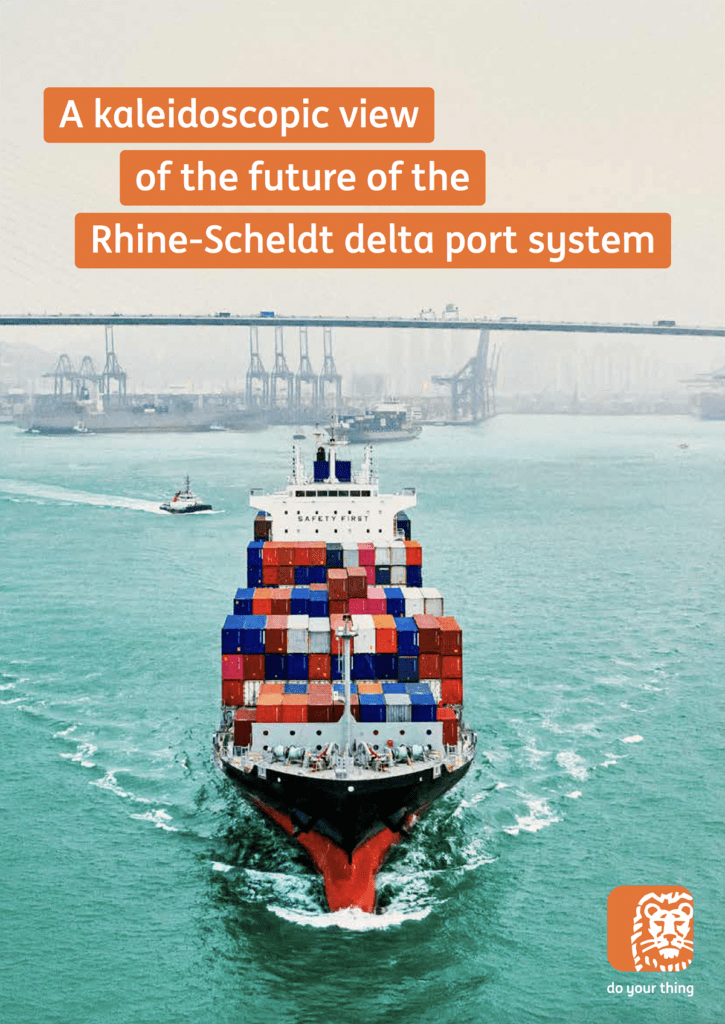The general objective of the study was the research of the future of port logistics and how to meet the demand for supply chain integration. The key question is how ports and port companies can deal with the increasing requirements and challenges of chain optimization, integration and coordination.
The objective of the survey consisted of mapping the expectations of port logistics of the future and the corresponding innovations business models, more specifically how progressive and innovative the port logistics companies in Flanders think about the future in general and more specific in their sector.
The survey specifically analyses the expectations of the port community in Flanders, Belgium (forwarders, port logistics companies, 3PL companies, shipping lines, shippers/industry).
The first part of the report analysed trends and outlook for port logistics focused around 5 key topics:
- Global demand and economic development
- A changing landscape for the global economic system
- Connecting the world: corridors and synchromodality
- Supply chains and logistics networks of the future
- Disruptive key ICT innovations for ports and logistics firms
Port logistics will change in the future due to an interaction between changes in the global economic system, the global transport system (corridors and synchromodality), supply chains and logistics networks and disruptive key ICT innovations. Port choice in the future will be influenced by the ability of logistics/industry clusters to adapt to Industry 4.0 and newly developed services in this field by the logistics sector.
Port competition between clearly-defined port areas with spatial boundaries (nodes) is shifting to groups of spatially-dispersed but functionally-integrated terminals in different ports (networks). This leads to an increased functional interdependency between ports. Individual port qualities will continue to play a key role in cargo routing decisions. Still, cargo will be channeled through the system also taking into account network-related considerations.
Supply chain integration and port-hinterland connectivity have become key to market players. This focus increases competition among market players who get more and more vertically integrated, but at the same time demands more co-ordination and co-operation between market players in view of achieving efficient supply chains.
The second part provides reactions of Belgian stakeholders to these topics.
Source: portexpertise
Notteboom, T., Neyens, K., 2017, The future of port logistics: meeting the challenges of supply chain integration, final report prepared for ING Bank, UAntwerpen and VIL, 87 p.

